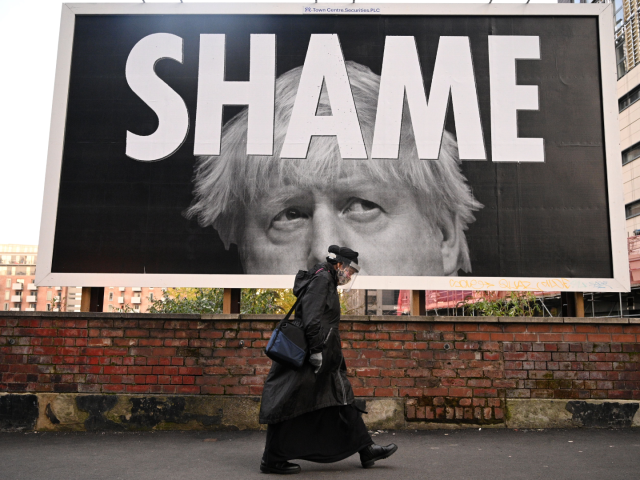The rampant inflation and cost of living crisis is mostly the result of the decision to lock down the economy rather than the oft-blamed war in Ukraine, British lawmakers have been told.
The drastic move — inspired by Communist Chinese policies — to shut down the British economy during the coronavirus crisis is the primary cause of the economic disaster befalling the country, a meeting of the Pandemic Response and Recovery All-Party Parliamentary Group (APPG) heard this week.
Speaking before the committee, Professor of Health Economics at Nottingham University Marilyn James noted that the Imperial College London March 2020 report, authored by disgraced Professor Neil Fergusson, which called for the imposition of lockdowns admitted that the “economic effects of the measures which are needed to achieve this policy goal will be profound.”
James lamented that this prediction has come true, saying that while inflation has become more noticeable this year, in part due to the war in Ukraine, he said that the trend began in 2020 “which will have largely been due to lockdown policies.”
High Inflation Could Last Years, Admits Former Central Bank Chief Economisthttps://t.co/Rqa5SUI9GK
— Breitbart London (@BreitbartLondon) May 10, 2022
Professor of Industrial Economics at the University of Nottingham Business School David Paton explained that “eye-watering sums of money” spent by the government during lockdowns to prop up shuttered businesses and “paying healthy people not to work” had masked the “inevitable economic consequences we are now seeing”.
“Many of our current problems could have been avoided had the government carried out an effective cost-benefit analysis of lockdowns and other restrictions,” Professor Paton said.
He went on to say that, as a result of being prevented from spending normally, people and corporations built up significant savings, which when restrictions eased flooded the market with cash. Yet when they tried to spend the capital it coincided with supply chain issues also caused by the lockdowns, further spurring inflation.
Further compounding the issue, the professor said, because the government had splashed out hundreds of billions of dollars during the lockdowns it has been limited in its ability to provide relief for the cost of living crisis currently embroiling the country because of the “hit to public finances caused by lockdown-induced government spending.”
Cost of Living Crisis: UK Inflation Climbs to 40-Year High of 9 Per Centhttps://t.co/kUeBKoGXNo
— Breitbart London (@BreitbartLondon) May 18, 2022
British business owner Adam Cunningham said that his startup had lost over £120,000 in revenue over a 12-month period due to lockdown restrictions. Adding insult to injury, because his small business was too new he did not qualify for any of the government support schemes, forcing him to take out a loan to stay open.
“I took a second job and explored every avenue I could to stay afloat, but I had to pay back the loan and in April this year I was left with no choice but to shut my business,” he lamented.
“We need reassurances that lockdowns will never happen again. The damage has been immense and irreparable. Bankruptcies, people losing their houses, taking their own lives for something that has been proven not to work,” Cunningham said.
Tens of thousands of kids in the United Kingdom have been driven into clinical depression by coronavirus lockdowns, a study has found. https://t.co/ScxEat2ofJ
— Breitbart News (@BreitbartNews) April 28, 2022
Despite the economic devastation resulting from the decision to shut down the country, Prime Minister Boris Johnson said in April that he would not hesitate to impose another lockdown on the British public should a “new variant” emerge.
It is questionable, however, if Britons would comply and abide by further lockdowns, particularly in light of the Prime Minister himself, along with Downing Street staff, being fined by the Metropolitan Police for violating the very lockdown restrictions he imposed on the rest of the country.
The chairwoman of the committee meeting, Tory MP Esther McVey, said: “Stay-at-home mandates damaged the economy and reduced access to two great levellers in life: education and healthcare. We need guarantees they will not happen again and the government now needs to acknowledge that the cost of living crisis started with lockdowns.”
Great Reset: State Planning Harsh COVID-Style Lockdown in Event of Fuel Shortage – Leakhttps://t.co/2X0soxReXS
— Breitbart London (@BreitbartLondon) June 7, 2022
Follow Kurt Zindulka on Twitter here @KurtZindulka

COMMENTS
Please let us know if you're having issues with commenting.